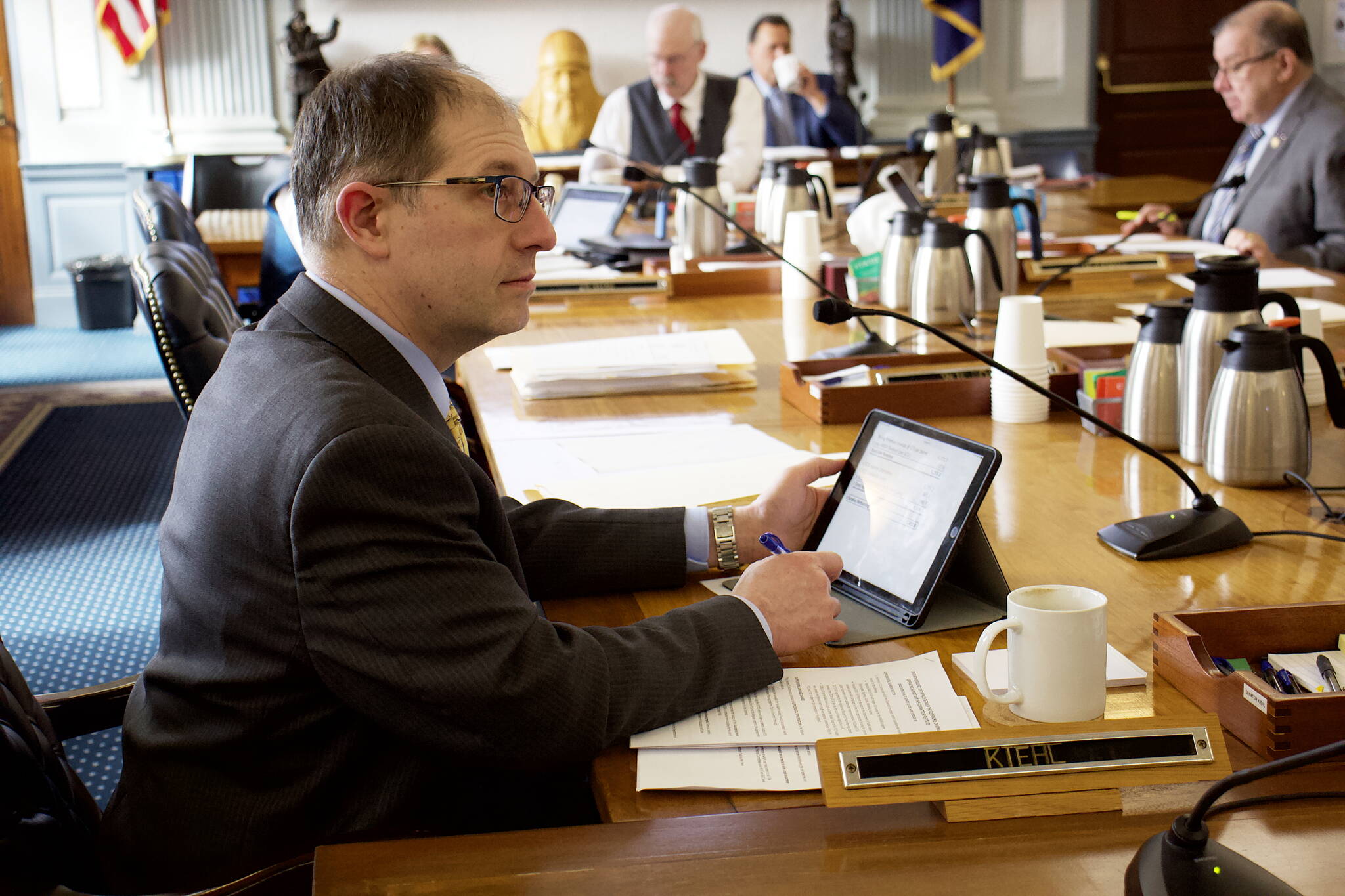The state Senate on Wednesday released its version of a proposed budget for next year that, unlike versions from the House and Gov. Mike Dunleavy with huge deficits, features a huge surplus of more than $1.4 billion. But since it also provides no money for things like the Permanent Fund dividend and increasing education funding it’s safe to say big and costly changes are coming.
Just including the $2,700 PFD that’s in the House’s budget, for instance, would turn the surplus into a $300 million deficit, according to a legislative presentation of the budget. Which is why many key Senate members are proposing a $1,300 dividend that would still leave some funds for other purposes not yet in the budget while avoiding tapping into reserve funds or — as the House did earlier this week — passing a spending plan that’s in the red.
“We cannot have an unbalanced budget by that pesky document they call the constitution,” said Sen. Bert Stedman, a Sitka Republican who co-chairs the Senate Finance Committee and is presiding over the operating budget hearings.
Juneau residents are among the first Alaskans invited to testify in person and online about the revised budget beginning at 9 a.m. Thursday, as the Senate Finance Committee begins a two-day public comment period.
Committee members probably won’t need convincing about increasing the Base Student Allocation, since that’s the top remaining declared goal of the Senate leadership. A bill advancing through the Senate would increase the current $5,960 BSA by $1,000 next year — at a cost of about $257 million and $348 the following year, which proponents say is roughly what’s needed to account for inflation since the last significant increase in 2017.
The commitment by key Senate members to that goal is such they’re grabbing the proverbial third rail of Alaska politics by advocating for a drastically reduced PFD unless enough new revenue is found to prevent the state from deficit spending that depleted its reserves.
Gov. Mike Dunleavy surprised many lawmakers and observers on Tuesday when he told legislators he plans to introduce a bill implementing a statewide sales tax, but he and administration officials are vague about the details. An existing House bill implementing a 2% statewide sales tax with no exceptions for items could generate about $740 million a year, according to a rough estimate.
Stedman also said lawmakers could revisit aspects of the budget this summer if oil prices, which are currently around $85 a barrel, remain higher than the official state forecast released last month.
The current Senate budget assumes there will be about $6.25 billion in revenue at the officially forecast oil price of $73 a barrel and spends about $4.85 billion, including a $191 million capital budget that legislative fiscal analysts say is the bare minimum to qualify for federal matching funds already approved for the state. Projections during previous finance committee meetings have included a capital budget of $300 million to $400 million.
The deadline for amendments from committee members is currently 2 p.m. Friday, in the hope of drafting a “final” budget the following week that’s ready for a floor vote by the full Senate during the first week of May. After that a joint committee of House and Senate members will need to draft a compromise budget that resolves differences between the budgets each chamber passed, which will then need approval by both bodies before the scheduled end of the session May 17.
One particularly tricky issue many years is needing a three-quarters vote of the both the House and Senate to tap into the Constitutional Budget Reserve, which currently has about $2.2 billion, if the final budget has a deficit. This year that would primarily involve making concessions to the mostly Democratic minority caucus in the House, which refused to provide its support for the current House budget.
• Contact reporter Mark Sabbatini at mark.sabbatini@juneauempire.com

